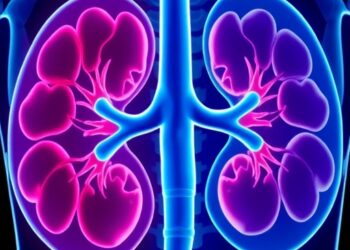BOSTON—Almost one out of five breast cancer survivors may experience weight gain of more than 10%, suggests a study presented Monday at ENDO 2024, the Endocrine Society’s annual meeting in Boston, Mass. A number of factors are associated with excessive weight gain, the researchers found.
Factors associated with more than 10% weight gain included a lower weight, younger age, and more advanced cancer stage at cancer diagnosis; hormone-positive breast cancer; mutations of the BRCA2 gene; undergoing more aggressive breast surgery; and the use of chemotherapy and endocrine therapy, the study found.
“Weight gain after breast cancer diagnosis and treatment is a common concern among survivors and poses a risk factor for breast cancer recurrence,” according to study lead researcher Maria Daniela Hurtado Andrade, M.D., Ph.D., of the Mayo Clinic in Jacksonville, Fla. “In addition to increasing the risk of breast cancer recurrence, weight gain increases the risk of cardiovascular disease. In breast cancer survivors, cardiovascular disease is the leading cause of death after breast cancer itself.”
The goal of the study was to identify which breast cancer survivors are at risk of weight gain during their survivorship. Using a registry of 4,744 breast cancer survivors, the researchers found that over the course of six years after breast cancer diagnosis, weight increased on average by two pounds. While this was only a modest weight gain, they found that 18% of survivors gained more than 10% of their body weight at six years.
“The variables we found to be associated with excess weight gain could be used as predictors of weight gain in this population,” Hurtado Andrade said. “Identifying these patients early in the survivorship course will allow us to institute measures to prevent excess weight gain, thereby improving breast cancer and cardiovascular disease outcomes. Our overarching goal is to promote a healthy longevity in breast cancer survivors.”
Hurtado Andrade is scheduled to speak at the Society’s obesity news conference at 9 a.m. Eastern June 2. Register to view the livestream at endomediastream.com.
BOSTON—Almost one out of five breast cancer survivors may experience weight gain of more than 10%, suggests a study presented Monday at ENDO 2024, the Endocrine Society’s annual meeting in Boston, Mass. A number of factors are associated with excessive weight gain, the researchers found.
Factors associated with more than 10% weight gain included a lower weight, younger age, and more advanced cancer stage at cancer diagnosis; hormone-positive breast cancer; mutations of the BRCA2 gene; undergoing more aggressive breast surgery; and the use of chemotherapy and endocrine therapy, the study found.
“Weight gain after breast cancer diagnosis and treatment is a common concern among survivors and poses a risk factor for breast cancer recurrence,” according to study lead researcher Maria Daniela Hurtado Andrade, M.D., Ph.D., of the Mayo Clinic in Jacksonville, Fla. “In addition to increasing the risk of breast cancer recurrence, weight gain increases the risk of cardiovascular disease. In breast cancer survivors, cardiovascular disease is the leading cause of death after breast cancer itself.”
The goal of the study was to identify which breast cancer survivors are at risk of weight gain during their survivorship. Using a registry of 4,744 breast cancer survivors, the researchers found that over the course of six years after breast cancer diagnosis, weight increased on average by two pounds. While this was only a modest weight gain, they found that 18% of survivors gained more than 10% of their body weight at six years.
“The variables we found to be associated with excess weight gain could be used as predictors of weight gain in this population,” Hurtado Andrade said. “Identifying these patients early in the survivorship course will allow us to institute measures to prevent excess weight gain, thereby improving breast cancer and cardiovascular disease outcomes. Our overarching goal is to promote a healthy longevity in breast cancer survivors.”
Hurtado Andrade is scheduled to speak at the Society’s obesity news conference at 9 a.m. Eastern June 2. Register to view the livestream at endomediastream.com.
# # #
Endocrinologists are at the core of solving the most pressing health problems of our time, from diabetes and obesity to infertility, bone health, and hormone-related cancers. The Endocrine Society is the world’s oldest and largest organization of scientists devoted to hormone research and physicians who care for people with hormone-related conditions.
The Society has more than 18,000 members, including scientists, physicians, educators, nurses and students in 122 countries. To learn more about the Society and the field of endocrinology, visit our site at www.endocrine.org. Follow us on Twitter at @TheEndoSociety and @EndoMedia.




